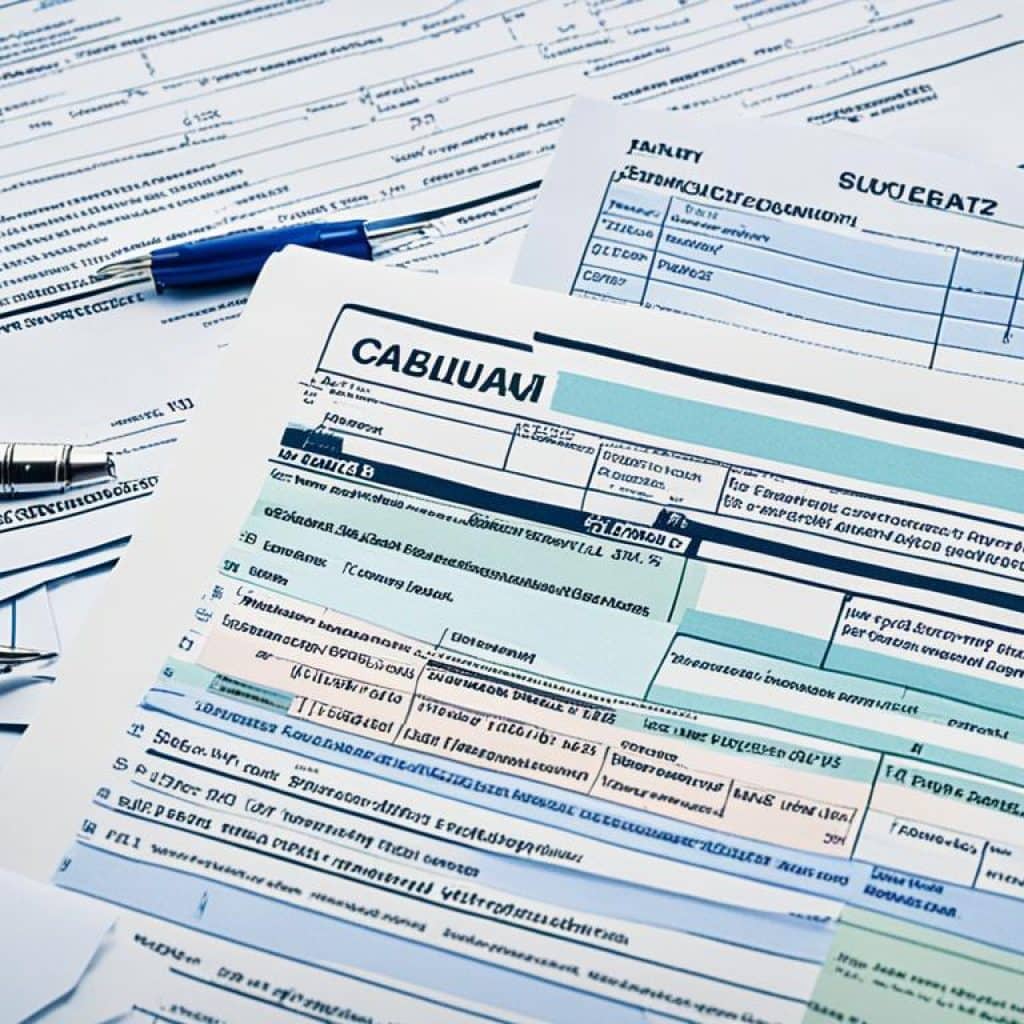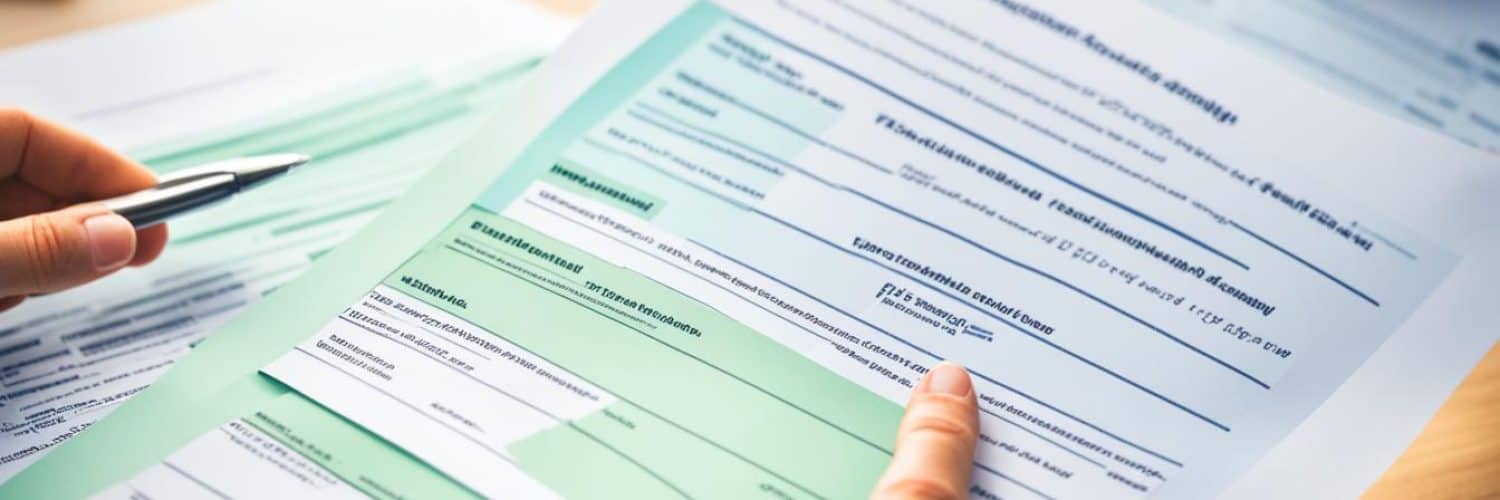Are you ready to take the next step in your relationship and marry your foreign-citizen fiancé(e) in the United States? Applying for a Fiancé Visa may seem like a daunting task, but with the right guidance, you can navigate the process smoothly and secure your visa with ease.
From understanding the application process to gathering the necessary documentation, this step-by-step guide will walk you through each stage of obtaining a Fiancé Visa. Whether you’re wondering about the eligibility criteria, the required paperwork, or the financial aspects, we’ve got you covered.
But before we dive into the details, let’s address a burning question: How to Apply for a Fiancé Visa? Well, it’s not as complicated as you might think. With the right knowledge and resources, you can navigate the requirements and procedures efficiently, ensuring a smooth and successful application process.
In this comprehensive guide, you will find all the information you need to confidently apply for a Fiancé Visa and begin your journey towards marriage and a future together in the United States.
Key Takeaways:
- Applying for a Fiancé Visa involves several steps and requirements.
- A Fiancé Visa, also known as a K-1 Visa, allows a foreign-citizen fiancé(e) of a U.S. citizen to travel to the U.S. for the purpose of getting married.
- To be eligible for a Fiancé Visa, certain criteria must be met by both the U.S. citizen sponsor and the foreign-citizen fiancé(e).
- The Fiancé Visa application process includes filing the petition, consular processing, gathering required documentation, and undergoing a medical examination.
- Financial support, visa fees, and rights and protections for Fiancé Visa holders are important factors to consider during the application process.
What is a K-1 Visa?
A K-1 Visa, also known as a Fiancé Visa, is a nonimmigrant visa that allows a foreign-citizen fiancé(e) of a U.S. citizen to travel to the United States for the purpose of getting married. The visa is valid for 90 days, during which the couple must get married.
Eligibility Criteria for a Fiancé Visa
To obtain a Fiancé Visa, both the U.S. citizen sponsor and the foreign-citizen fiancé(e) must meet specific eligibility criteria. These requirements ensure that the couple is legally able to marry and have a genuine relationship. The eligibility criteria include:
- Legally able to marry: Both the U.S. citizen sponsor and the foreign-citizen fiancé(e) must be legally eligible to marry. This means they must meet the legal age requirements and be unmarried at the time of filing the visa application.
- In-person meeting: The U.S. citizen sponsor and the foreign-citizen fiancé(e) must have met in person at least once within the two years preceding the visa application. This requirement aims to ensure that the couple has a genuine relationship and is not entering into a fraudulent marriage solely for immigration purposes.
- Genuine relationship: The couple must demonstrate that they have a bona fide relationship and intend to marry within 90 days of the foreign-citizen fiancé(e) entering the United States. This can be done by providing evidence of their shared activities, communication, joint travels, and financial support for each other.
Meeting these eligibility criteria is crucial for a successful Fiancé Visa application. It establishes the authenticity of the relationship and the intention to marry, which are key factors in the visa approval process.
Filing the Petition
Once you have determined your eligibility for a Fiancé Visa and gathered the necessary documentation, the next step is to file the petition with the United States Citizenship and Immigration Services (USCIS). The petition is filed by the U.S. citizen sponsor and it initiates the Fiancé Visa application process.
The main form that needs to be submitted is Form I-129F, also known as the Petition for Alien Fiancé(e). This form serves as a formal request to USCIS to allow your foreign-citizen fiancé(e) to enter the United States.
When filling out Form I-129F, it is crucial to provide accurate and detailed information. This includes personal details of both the U.S. citizen sponsor and the foreign-citizen fiancé(e), as well as information about the couple’s relationship and their intent to marry within 90 days of the foreign-citizen fiancé(e) entering the U.S. It is also important to include supporting evidence of the relationship, such as photographs, correspondence, and any other relevant documents that demonstrate the authenticity of your relationship.
After completing the form and gathering all the necessary documents, you can submit the petition to the USCIS. The filing fee for Form I-129F is $535 (subject to change), and it must be paid at the time of filing.
Once the petition is filed, USCIS will review the application and make a decision on whether to approve or deny it. If the petition is approved, it will be forwarded to the National Visa Center (NVC) for further processing.
| Key Points | Details |
|---|---|
| Form to be filed | Form I-129F |
| Form filing fee | $535 (subject to change) |
| Supporting evidence | Photographs, correspondence, proof of meeting in person, etc. |
| Processing by | United States Citizenship and Immigration Services (USCIS) |
Remember, filing the petition is just the first step in the Fiancé Visa application process. After the petition is approved by USCIS, the application will move on to the next stage of consular processing. Stay tuned for the next section to learn more about this crucial step.
Consular Processing
Once the petition is approved by USCIS, it moves to the next stage of the process known as consular processing. The petition is sent to the National Visa Center (NVC), who will then notify the U.S. citizen sponsor and the foreign-citizen fiancé(e) to begin the consular processing.
Consular processing involves attending a K-1 visa interview at the U.S. Embassy or Consulate in the foreign-citizen fiancé(e)’s home country. This interview plays a crucial role in determining the eligibility of the fiancé(e) for the K-1 visa, and it is essential to be well-prepared.
During the interview, the foreign-citizen fiancé(e) will be asked questions about their relationship with the U.S. citizen sponsor, their plans for marriage, and their intentions in the United States. It is important to provide honest and accurate answers to these questions.
The consular officer will also review the documentation provided by the couple, including proof of the relationship and the approved petition. They may also ask for additional documents to verify the authenticity of the relationship.
Once the consular officer is satisfied with the information provided, and all requirements are met, the foreign-citizen fiancé(e) will be granted the K-1 visa. This visa allows them to travel to the United States and get married to the U.S. citizen sponsor within the specified 90-day period.
It is important to note that the consular processing timeline may vary depending on the workload at the U.S. Embassy or Consulate in the foreign-citizen fiancé(e)’s home country. It is advisable to monitor the progress of the application and stay in touch with the U.S. Embassy or Consulate for updates.
Documents Required for Consular Processing
| Required Documents |
|---|
| Valid passport |
| Form DS-160 Confirmation Page (completed online) |
| Appointment confirmation letter |
| Proof of relationship with the U.S. citizen sponsor |
| Approved Form I-129F petition |
| Other supporting documents as requested |

Attending the K-1 visa interview at the U.S. Embassy or Consulate is a critical step in the Fiancé Visa application process. It is essential to be well-prepared and provide all necessary documentation to increase the chances of a successful outcome. The next section will discuss the required documentation in detail.
Required Documentation
When applying for a Fiancé Visa, it is essential to gather all the necessary documents to support your application. The following documentation is required to ensure a smooth and successful process:
1. Form DS-160
The Form DS-160 is an online application form that must be completed by the foreign-citizen fiancé(e). This form collects personal information and details about the purpose of the visit to the United States. It is crucial to provide accurate and truthful information to avoid any complications.
2. Passport
A valid passport is an essential document for the Fiancé Visa application. It should be valid for at least six months beyond the intended period of stay in the United States. Make sure to submit a clear copy of the passport’s biographical page.
3. Birth Certificate
The foreign-citizen fiancé(e) must provide a certified copy of their birth certificate. This document establishes their identity and verifies their age. If the birth certificate is not in English, it must be accompanied by a certified translation.
4. Evidence of Relationship with U.S. citizen sponsor
It is crucial to provide evidence of a genuine relationship with the U.S. citizen sponsor. This can include photographs, travel itineraries, communication records, or any other relevant documents that showcase the couple’s commitment and intention to marry within 90 days of the foreign-citizen fiancé(e) entering the U.S.
Additional documentation may be required depending on the specific circumstances of your case. It is crucial to consult the official resources or seek legal advice to ensure you have all the necessary documents to support your Fiancé Visa application.
“Properly preparing and submitting the required documentation is a vital step in securing your Fiancé Visa. Make sure to gather all the necessary paperwork and provide accurate information to increase your chances of a successful application.” – Immigration Attorney
| Required Documentation for Fiancé Visa application |
|---|
| Form DS-160 |
| Passport |
| Birth Certificate |
| Evidence of Relationship with U.S. citizen sponsor |
Medical Examination and Vaccination Requirements
As part of the Fiancé Visa application process, the foreign-citizen fiancé(e) is required to undergo a medical examination conducted by an authorized panel physician. This medical examination is an essential step to ensure the health and well-being of both the applicant and the U.S. population.
During the medical examination, the panel physician will assess the applicant’s overall health and screen for any communicable diseases or medical conditions that may pose a public health concern. The examination typically includes a review of the applicant’s medical history, a physical examination, and any necessary laboratory tests.
In addition to the medical examination, vaccination requirements may also apply. The specific vaccinations required will depend on the applicant’s age, medical history, and current immunization status. The purpose of these vaccinations is to protect against common vaccine-preventable diseases and ensure the health and safety of the applicant and the U.S. population.
Please note that while vaccinations are an important aspect of the medical examination, they are not mandatory for obtaining the Fiancé Visa. However, it is strongly recommended that applicants complete any required vaccinations to avoid potential health risks and complications in the future.
Importance of Vaccinations
Vaccinations play a crucial role in preventing the spread of infectious diseases. By ensuring that individuals are immunized, we can protect not only their health but also the health of the community at large. Vaccines have been proven to be safe and effective in preventing the spread of diseases such as measles, mumps, rubella, hepatitis B, and influenza.
“Vaccines are one of the greatest achievements in public health. They have saved millions of lives and prevented countless cases of disease and disability worldwide.”
It is important to note that the vaccination requirements for the Fiancé Visa are in line with the guidelines set by the U.S. Centers for Disease Control and Prevention (CDC). These guidelines are based on extensive research and scientific evidence, ensuring the health and safety of both individuals and the community.
As part of the medical examination process, the panel physician will review the applicant’s immunization records and administer any necessary vaccines to fulfill the requirements. It is advisable for applicants to consult with the panel physician or their primary healthcare provider to discuss any concerns or questions regarding the vaccination process.
Proof of Financial Support
When applying for a Fiancé Visa, it is crucial to demonstrate that the U.S. citizen sponsor has the financial means to support their foreign-citizen fiancé(e) during their stay in the United States. This proof of financial support is essential to ensure that the fiancé(e) does not become a public charge.
To provide this evidence, the U.S. citizen sponsor can submit Form I-134, Affidavit of Support, along with the Fiancé Visa application. Form I-134 serves as a legally binding commitment by the sponsor to financially support their fiancé(e). It demonstrates that the sponsor has the necessary income and resources to cover the fiancé(e)’s living expenses and prevent them from relying on public assistance.
Form I-134 requires the sponsor to disclose their financial information, including income, assets, and liabilities. Additionally, the sponsor must provide supporting documentation such as bank statements, tax returns, and employment verification to validate their financial stability.
It is important to note that Form I-134 is not a legally binding contract for the U.S. citizen sponsor. However, it serves as a significant factor in determining the foreign-citizen fiancé(e)’s eligibility for the Fiancé Visa. The U.S. immigration authorities will review the sponsor’s financial situation and assess whether it is sufficient to support the fiancé(e) without relying on public benefits.
Table: Supporting Documentation for Proof of Financial Support
| Required Document | Description |
|---|---|
| Form I-134 | Completed and signed by the U.S. citizen sponsor, affirming financial support. |
| Bank Statements | Recent statements demonstrating the sponsor’s financial resources. |
| Tax Returns | Previous years’ tax returns to verify income and financial stability. |
| Employment Verification | Letter from the sponsor’s employer, pay stubs, or other proof of employment. |
| Income Documentation | Documents supporting the sponsor’s reported income, such as W-2 forms or 1099 statements. |
| Asset Documentation | Evidence of the sponsor’s assets, such as property deeds or investment statements. |

Visa Fees and Costs
When applying for a Fiancé Visa, it’s important to be aware of the various fees and costs associated with the application process. These fees can vary depending on your specific case and the country where the application is being processed. Understanding the different fees involved will help you plan your budget accordingly and avoid any unexpected financial surprises.
1. Petition Filing Fee
One of the initial fees you will encounter is the petition filing fee. This fee is required when submitting Form I-129F, the Petition for Alien Fiancé(e), to the United States Citizenship and Immigration Services (USCIS). The current filing fee for Form I-129F is $535.
2. Visa Application Fee
Once your petition is approved by the USCIS, you will need to pay the visa application fee. This fee is paid to the U.S. Embassy or Consulate where you will attend your visa interview. The current visa application fee for a K-1 Fiancé Visa is $265.
3. Medical Examination Fee
As part of the Fiancé Visa application process, you will be required to undergo a medical examination. The purpose of this examination is to ensure that you are in good health and meet the health requirements for entry into the United States. The cost of the medical examination can vary depending on the country and the panel physician you visit, but it is generally in the range of $200 to $400.
4. Other Potential Costs
In addition to the aforementioned fees, there may be other costs associated with the Fiancé Visa application process. These can include expenses such as document translation, travel to the U.S. Embassy or Consulate for the visa interview, and any additional fees required by the specific country where the application is being processed. It’s important to factor in these potential costs when budgeting for your Fiancé Visa application.
5. Table - Summary of Fiancé Visa Fees and Costs
| Fee | Amount |
|---|---|
| Petition Filing Fee | $535 |
| Visa Application Fee | $265 |
| Medical Examination Fee | $200 to $400 (approx.) |
Understanding the fees and costs associated with the Fiancé Visa application process is an important step in planning for your journey towards marriage in the United States. By being aware of these financial requirements, you can ensure that you have the necessary funds to complete the application process and begin your new life together.
Rights and Protections
Fiancé Visa holders are granted important rights and protections when they enter the United States. These rights ensure their safety and well-being while pursuing their journey towards marriage.
Protection against Domestic Violence: Fiancé Visa holders have the right to be protected from any form of domestic violence. If they experience abuse or harassment from their U.S. citizen sponsor or any other person, they can seek legal assistance and protection.
Protection against Sexual Assault: Fiancé Visa holders are entitled to protection against sexual assault. Any unwanted sexual advances or acts are unacceptable and illegal, and proper legal measures can be taken to ensure their safety.
Protection against Child Abuse: Fiancé Visa holders also have the right to protect their children from any form of abuse. If they witness or suspect child abuse, it is crucial to report it to the appropriate authorities for immediate intervention and protection.
“Fiancé Visa holders are guaranteed rights and protections that safeguard their physical and emotional well-being, ensuring a safe and supportive environment for their journey towards marriage.”
It is important for Fiancé Visa holders to be aware of their rights and protections in the United States. Understanding these rights enables them to seek help and take necessary action if they find themselves in difficult or dangerous situations.
To further illustrate the rights and protections afforded to Fiancé Visa holders, the following table outlines key legal protections as provided by relevant U.S. laws:
| Fiancé Visa Holder’s Rights and Protections | Relevant U.S. Laws |
|---|---|
| Protection against domestic violence | The Violence Against Women Act (VAWA) |
| Protection against sexual assault | The Sexual Assault Survivors’ Bill of Rights |
| Protection against child abuse | The Child Abuse Prevention and Treatment Act |
It is important for Fiancé Visa holders to familiarize themselves with these laws and understand how to access the rights and protections they provide.
By knowing and exercising their rights, Fiancé Visa holders can create a safe and supportive environment for themselves and their loved ones as they embark on their journey towards marriage in the United States.
After Arrival in the United States
Once you and your foreign-citizen spouse have arrived in the United States on a Fiancé Visa and successfully tied the knot, it’s time to take the necessary steps for your future together. Here’s what you need to know about adjusting your status, obtaining a Social Security Number, and exercising your right to work in the U.S.
Adjustment of Status
As a foreign-citizen spouse, you have the opportunity to apply for Adjustment of Status to become a lawful permanent resident of the United States. This process allows you to transition from your nonimmigrant Fiancé Visa status to that of a green card holder, granting you long-term residency and the ability to live and work in the U.S. indefinitely.
Working in the U.S.
Once your status has been adjusted and you hold a valid work permit, you have the freedom to seek employment in the United States. This opens up a world of opportunities for you to contribute to the economy, build a career, and achieve financial independence. Take advantage of the vast job market and pursue your professional aspirations in your new home.
Social Security Number
A Social Security Number (SSN) is essential for various purposes in the United States, including employment, taxation, and accessing government benefits. As a lawful permanent resident, you can apply for an SSN through the Social Security Administration. This unique identifier will streamline your interactions with government agencies and enable you to establish your financial and legal identity in the country.
Remember, obtaining an SSN and securing work authorization are crucial steps in establishing your life in the United States. They provide you with the tools you need to pursue your dreams, connect with the community, and thrive in your new home.
It’s important to keep in mind that each individual’s circumstances may vary, and it’s recommended to consult with an immigration attorney or expert to ensure you navigate the Adjustment of Status process smoothly and understand your rights and responsibilities as a green card holder.

Traveling Outside the United States
Once you have been granted a Fiancé Visa and are in the process of obtaining your green card, you may need or desire to travel outside the United States. In such cases, it is essential to understand the requirements and procedures involved to ensure a smooth journey.
When traveling outside the U.S. on a Fiancé Visa, it is crucial to obtain Advance Parole. This document serves as permission for you to leave and re-enter the United States without abandoning your green card application.
Advance Parole protects your status as a Fiancé Visa holder and allows you to return to the U.S. without encountering any immigration issues or jeopardizing your immigration process. It ensures that you can continue the necessary steps towards becoming a lawful permanent resident.
To apply for Advance Parole, you must complete and submit Form I-131, Application for Travel Document, to the United States Citizenship and Immigration Services (USCIS). The form requires information about your travel plans, the reason for your travel, and supporting documentation.
It is crucial to apply for Advance Parole well in advance of your planned departure date, as processing times can vary. To avoid any delays or complications, it is recommended to submit your application as soon as you know you will need to travel outside the U.S.
Once you receive your approved Advance Parole document, it is important to carry it with you when traveling outside the United States. Upon your return, you will need to present it to the Customs and Border Protection officer at the port of entry to re-enter the country.
Traveling outside the United States on a Fiancé Visa is possible and relatively straightforward with the proper documentation. Applying for and obtaining Advance Parole ensures that you can maintain your immigration process while still being able to travel and attend to personal matters outside the country.
Removing Conditions on Residence
Once the foreign-citizen spouse has obtained conditional permanent resident status, it is necessary to take the next step and petition USCIS to remove the conditions. This is done through Form I-751, Petition to Remove Conditions on Residence.
The Form I-751 must be filed jointly with the U.S. citizen spouse. It serves as a request to remove the conditions and grant the foreign-citizen spouse full permanent resident status in the United States.
It’s important to note that the filing of Form I-751 must be done within the 90-day window before the conditional permanent resident status expires. Failure to file on time may result in the termination of the foreign-citizen spouse’s permanent residency.
When filing Form I-751, supporting evidence must be included to demonstrate that the marriage is bona fide and not solely for the purpose of evading immigration laws. This evidence may include joint bank account statements, lease or mortgage documents showing shared residence, utility bills with both spouses’ names, and photos showing the couple’s life together.
After submitting Form I-751, the couple may be required to attend an interview with USCIS to further establish the authenticity of their marriage. It’s important to be well-prepared for this interview and provide any additional documentation that may be requested.
Note: It is crucial to maintain updated contact information with USCIS during the removal of conditions process. Failure to receive important notifications may result in delays or denials of the petition.
Once the conditions are successfully removed, the foreign-citizen spouse will receive a new permanent resident card (Green Card) valid for a period of 10 years. This will grant them unrestricted residency in the United States, without the need for further petitioning or renewal.
Required Documentation for Form I-751
| Document | Description |
|---|---|
| Form I-751 | The completed and signed Petition to Remove Conditions on Residence |
| Evidence of Bona Fide Marriage | Documentation demonstrating the authenticity of the marriage, such as joint bank account statements, lease or mortgage documents, utility bills, and photos |
| Copy of Conditional Green Card | A photocopy of the front and back of the conditional Green Card |
| Proof of Joint Financial Assets | Documents showing joint bank accounts, investments, or major joint purchases |
| Joint Tax Returns | Copies of jointly filed tax returns for the duration of the marriage |
| Proof of Shared Residence | Lease or mortgage documents, utility bills, or other forms of documentation showing shared residence |
| Documentation for Children | If applicable, birth certificates or adoption papers for any children born or adopted during the marriage |
Successfully removing the conditions on residence is a significant milestone in the journey towards obtaining permanent residency in the United States. It is crucial to carefully prepare the Form I-751 petition and provide strong supporting evidence to demonstrate the authenticity of the marriage. By following the guidelines provided by USCIS and submitting a well-documented petition, the foreign-citizen spouse can work towards securing their permanent resident status for the long term.
Applying for Citizenship
Once the foreign-citizen spouse has become a lawful permanent resident, they have the opportunity to apply for U.S. citizenship through a process called naturalization. This is an important step towards fully integrating into American society and enjoying the rights and privileges of being a U.S. citizen.
In order to apply for U.S. citizenship, the foreign-citizen spouse must meet certain requirements:
- Residency: The spouse must have continuously resided in the U.S. as a lawful permanent resident for a specified period of time. The general requirement is five years of permanent residency, although there are exceptions for certain individuals, such as those married to U.S. citizens, who may be eligible to apply after three years.
- Physical Presence: The spouse must have been physically present in the U.S. for a specific amount of time during the residency period. Generally, at least half of the residency period must be spent physically present in the U.S.
- Good Moral Character: The spouse must demonstrate good moral character, which means avoiding criminal activities and maintaining a positive record.
- English Language Proficiency: The spouse must demonstrate the ability to read, write, speak, and understand basic English. This requirement can be fulfilled by passing an English language test.
- Knowledge of U.S. Civics: The spouse must pass a civics test to demonstrate knowledge of U.S. history, government, and the rights and responsibilities of citizenship.
Once all the requirements are met, the foreign-citizen spouse can submit an application for naturalization to the U.S. Citizenship and Immigration Services (USCIS). The application must be accompanied by supporting documentation, including evidence of residency, proof of good moral character, and the results of the English language and civics tests.
It is important to note that the naturalization process can take several months, and there may be additional steps, such as an interview and a background check. However, upon successful completion of the process, the foreign-citizen spouse will be granted U.S. citizenship and can enjoy the benefits of being an American citizen.
U.S. Citizenship Requirements
| Requirement | Description |
|---|---|
| Residency | Continuously residing in the U.S. as a lawful permanent resident for a specified period of time. |
| Physical Presence | Being physically present in the U.S. for a specific amount of time during the residency period. |
| Good Moral Character | Demonstrating good moral character by avoiding criminal activities and maintaining a positive record. |
| English Language Proficiency | Demonstrating the ability to read, write, speak, and understand basic English. |
| Knowledge of U.S. Civics | Demonstrating knowledge of U.S. history, government, and the rights and responsibilities of citizenship. |
Potential Challenges and Ineligibilities
While applying for a Fiancé Visa, it is important to be aware of the potential challenges and ineligibilities that may arise. Certain circumstances can make an individual ineligible for a Fiancé Visa, which can include criminal convictions or previous immigration violations. It is crucial to thoroughly understand the eligibility criteria and seek legal advice if necessary to address any potential challenges that may arise during the application process.
One of the common ineligibilities for a Fiancé Visa is a criminal conviction. If an individual has been convicted of a serious crime, it can significantly impact their eligibility for the visa. Additionally, previous immigration violations or misrepresentations can also lead to ineligibility. It is essential to have a clean immigration record and provide all necessary documentation truthfully and accurately.
Seeking legal advice from an experienced immigration attorney can be beneficial in addressing any ineligibilities or challenges that may arise during the Fiancé Visa application process. An attorney can help navigate complex legal issues, provide guidance on eligibility requirements, and assist in gathering the necessary documentation to strengthen the application.
It is crucial to be aware of the potential challenges and ineligibilities that may arise when applying for a Fiancé Visa:
- Ensuring a clean immigration record, free from previous violations or misrepresentations
- Addressing criminal convictions, understanding their impact on visa eligibility
- Seeking legal advice to navigate complex legal issues and strengthen the application
By understanding and addressing these potential challenges and ineligibilities, applicants can increase their chances of obtaining a Fiancé Visa and successfully navigating the application process.
Conclusion
Applying for a Fiancé Visa can be a complex and daunting process, but with the right guidance and understanding of the requirements, you can successfully navigate your way through the application process. This comprehensive Fiancé Visa application guide has provided you with a step-by-step overview to help you secure your Fiancé Visa and embark on your journey towards marriage in the United States.
From determining your eligibility and filing the petition to consular processing and gathering the necessary documentation, each step has been covered in detail. Additionally, vital information about medical examination, financial support, visa fees, and your rights and protections as a Fiancé Visa holder has been outlined.
Remember, it’s crucial to stay informed and seek legal advice if needed, especially when faced with potential challenges or ineligibilities. By following the guidelines presented in this Fiancé Visa application guide, you’ll be well-prepared to navigate the application process and increase your chances of a successful outcome. Good luck with your application, and may your journey towards a blissful marriage in the United States be filled with joy and love!
FAQ
What is a K-1 Visa?
A K-1 Visa, also known as a Fiancé Visa, is a nonimmigrant visa that allows a foreign-citizen fiancé(e) of a U.S. citizen to travel to the United States for the purpose of getting married. The visa is valid for 90 days, during which the couple must get married.
What are the eligibility criteria for a Fiancé Visa?
To be eligible for a Fiancé Visa, the U.S. citizen sponsor and the foreign-citizen fiancé(e) must meet certain requirements. These include being legally able to marry, having met in person in the last two years, and having a genuine relationship.
How do I file the petition for a Fiancé Visa?
The first step in the Fiancé Visa application process is filing the petition. The U.S. citizen sponsor must file Form I-129F, Petition for Alien Fiancé(e), with the USCIS. This form must include evidence of the couple’s relationship and their intention to marry within 90 days of the foreign-citizen fiancé(e) entering the U.S.
What is the consular processing for a Fiancé Visa?
After USCIS approves the petition, it is sent to the National Visa Center (NVC), who will then notify the U.S. citizen sponsor and the foreign-citizen fiancé(e) to start the consular processing. The foreign-citizen fiancé(e) will need to attend a K-1 visa interview at the U.S. Embassy or Consulate in their home country.
What documents do I need for a Fiancé Visa application?
The foreign-citizen fiancé(e) will need to gather various documents for their Fiancé Visa application. This includes a completed Form DS-160, a valid passport, birth certificate, and evidence of the relationship with the U.S. citizen sponsor. Additional documentation may be required depending on the specific case.
Is a medical examination required for a Fiancé Visa?
Yes, as part of the Fiancé Visa application process, the foreign-citizen fiancé(e) will need to undergo a medical examination by an authorized panel physician. Vaccinations may be required, although they are not mandatory for obtaining the visa.
How can I prove financial support for my fiancé(e) during their stay in the U.S.?
The U.S. citizen sponsor must provide evidence of financial support for the foreign-citizen fiancé(e) during their time in the U.S. This can be done through Form I-134, Affidavit of Support, which shows that the sponsor has the financial means to support their fiancé(e).
What are the fees associated with a Fiancé Visa application?
There are various fees associated with the Fiancé Visa application, including the petition filing fee, the visa application fee, and the medical examination fee. These fees can vary depending on the specific case and the country where the application is being processed.
What rights and protections do Fiancé Visa holders have in the United States?
Fiancé Visa holders have certain rights and protections in the United States, including protection against domestic violence, sexual assault, and child abuse. It is important to be aware of these rights, which can provide assistance and support in difficult situations.
What are the next steps after arriving in the United States on a Fiancé Visa and getting married?
After arriving in the U.S. on a Fiancé Visa and getting married, the foreign-citizen spouse can apply for Adjustment of Status to become a lawful permanent resident. They can also apply for a Social Security Number and have the right to work in the U.S.
Can a Fiancé Visa holder travel outside the United States?
If a Fiancé Visa holder needs to travel outside the U.S. before obtaining their green card, they will need to apply for Advance Parole. This document allows them to re-enter the U.S. without abandoning their green card application.
What are the steps to remove the conditions on residence for a conditional permanent resident?
After obtaining conditional permanent resident status, the foreign-citizen spouse must petition USCIS to have the conditions removed. This is done through Form I-751, Petition to Remove Conditions on Residence, which must be filed jointly with the U.S. citizen spouse.
Can a Fiancé Visa holder apply for U.S. citizenship?
After becoming a lawful permanent resident, the foreign-citizen spouse can eventually apply for U.S. citizenship. This process, known as naturalization, involves meeting certain requirements, including residency and language proficiency.
Are there any circumstances that can make an individual ineligible for a Fiancé Visa?
Yes, there may be certain circumstances that make an individual ineligible for a Fiancé Visa, such as criminal convictions or previous immigration violations. It is important to be aware of these potential challenges and seek legal advice if necessary.
How can I successfully navigate the Fiancé Visa application process?
Applying for a Fiancé Visa can be a complex process, but with the right guidance and understanding of the requirements, it is possible to successfully navigate the application process. This guide has provided a step-by-step overview to help applicants secure their Fiancé Visa and begin their journey towards marriage in the United States.








Add comment